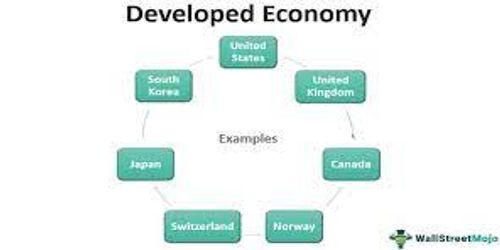What Is An Interest-Only Loan: A Complete Understanding
Jan 03, 2024 By Triston Martin
Monthly payments on a loan typically go toward paying off both the principal and the interest amount. By making regular interest payments, your principal debt will be reduced over time. In the case of the interest-only loan, a borrower is responsible for paying back just the interest accrued on the borrowed funds (also known as your "principal").
For a certain period, it means cheaper monthly payments. At some point, you must repay the whole debt at once or in larger monthly installments that cover principal and interest.
The monthly payments for the interest-only mortgage are lower initially, but this strategy comes with several risks and is often frowned upon. Learn more about their operation and application process below.

How Do Interest-Only Loans Function?
Borrowing terms for interest-only mortgage loans are split into two parts.
- You pay just the interest on your mortgage for a certain number of years (usually between three and ten). Neither the principal nor your equity will decrease due to your payments.
- The loan will switch to amortization when the first term ends. You will make bigger principal and interest payments for the remaining period. In the alternative, a balloon payment may be payable.
Mortgage terms might range from just a few years to well over twenty, during which time you'll make monthly interest payments. Your debt to the lender after the mortgage term will be the same as when you first borrowed the money, so you'll either have to pay it back or refinance.
Lenders may want proof of your capacity to pay off the principal and interest after the term before they approve an interest-only loan. A "repayment vehicle" is what we refer to as this, and it might be an investment, an individual savings account, or an endowment policy.
What Steps Should I Take Before Applying?
Before considering applying for an interest-only loan, you should consider the following.
Mortgage Comparison
Before committing to an interest-only mortgage, examine all of your available options. Always try to learn about the many available mortgage programs to make the greatest choice for your present and future financial needs.
To obtain the best mortgage rate, it's a good idea to look at offers from many providers and compare the conditions.
Verify Your Financial Limits
Lenders want assurance that you won't default on your mortgage if interest rates rise or your financial situation changes. In addition to how much money you make, they could also consider how much you spend.
Raise Your Credit Rating
Your credit score may be determined based on the lender's review of your credit report, application, and maybe even previous dealings with you as a client. This factor is used when deciding whether we should provide you with a loan.
If your credit score shows you are a responsible borrower, lenders will be more eager to deal with you. There may be a few different things you might do to raise your credit score. If you check your credit score for free on Experian Credit Score, you may get a decent picture of how potential lenders may look at you.
Your Repayment Schedule
Lenders of interest-only loans will likely want you to have a strategy for repaying the principal after the loan's interest-only period ends. Consider your repayment options, the dangers involved, and how you may demonstrate your commitment to the lender.
Nothing is wrong if you are looking for the assistance of a mortgage broker who can provide you with specialized mortgage guidance (although for a price).

An Interest-Only Loan's Benefits
For certain borrowers, interest-only loans might be the best option because:
- Monthly payments are often lower at the start. Interest-only loans often have smaller monthly payments than other types of loans since the borrower pays off just the interest accrued during the loan's first years of payment.
- It may permit you to purchase a more expensive home. You may get more money thanks to the reduced interest-only payment during the first term.
- Quicker payoff times compared to traditional loans. If you make additional payments on an interest-only loan, you may reduce the amount you owe over time and reduce your monthly payment.
The principal on a traditional loan may be reduced by making more payments, but the installments do not change.
- Reduced monthly payments may improve your cash flow since you will have a little additional money to spend.
- Since these mortgages are often structured as adjustable-rate loans, the interest rates may be more affordable than traditional fixed-rate mortgages.
An Interest-Only Loan's Drawbacks
Interest-only loans provide the potential for greater financial risk for borrowers. These are a few drawbacks of this kind of loan:
- A lack of home equity is preventing you from making improvements. If you want your home's worth to rise over time, investing in its equity is crucial. If you have an interest-only mortgage, your home's equity won't grow until you start making principal payments.
- You may lose payment-related equity. Any equity you acquired from your down payment might be eliminated if the value of your house decreases. Refinancing might become problematic if you lose equity in your home.
- While the prospect of low monthly payments may seem enticing for a certain length, it does not negate the need to repay the complete loan balance at some point. Your payments will rise when the interest-only term finishes.
- Borrowers should know that interest-only loans often have higher interest rates than those with principal and interest payments. Interest costs on a mortgage will increase with a rise in interest rates.
Conclusion
There are advantages and disadvantages to having an interest-only loan. It can be the best choice if you're on a tight budget or need a temporary somewhere to live. Remember that you will eventually need to make principal payments.
Suppose you're trying to decide whether or not an interest-only mortgage makes financial sense. In that case, you may use a mortgage calculator that considers both interest-only payments and payments that include principal to help you make a decision.

What Is a Developed Economy?: An Extensive Overview

Which Is Better, Buying Or Building A Home?

How to Get Unemployment Pay

What Is An Interest-Only Loan: A Complete Understanding

How Do You Get an Income Share Agreement for College: Your Complete Guide

What Is The Average Cost to Paint a House in 2023: An Overview

Can You Trust Credit Unions with Your Money?

BECU rolls out same-day payments

Your Easy Guide to Planning for Out-of-Pocket Healthcare Costs

